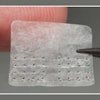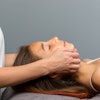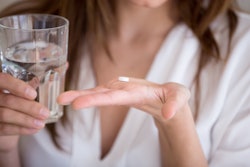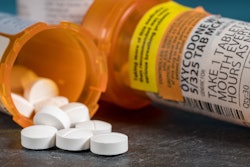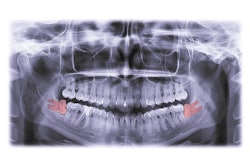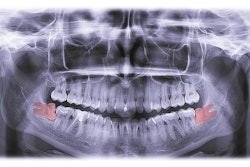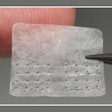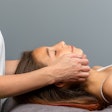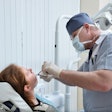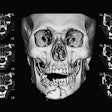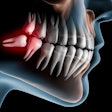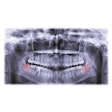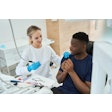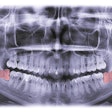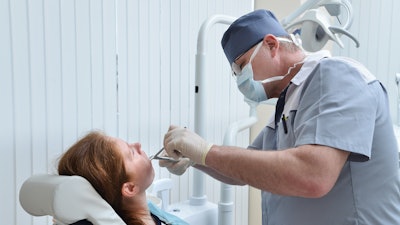
A combination of ibuprofen-arginine (Ib-Ar) and dexamethasone (DX) may provide better pain relief in patients following lower third-molar surgery. This study was recently published in Oral Surgery, Oral Medicine, Oral Pathology and Oral Radiology.
Although the combination didn't show clear benefits for quality of life or pain catastrophizing, patients using placebos had the worst outcomes, the authors wrote.
"The combination of ibuprofen-arginine 770mg (ibuprofen 400mg + L-arginine 370mg) with dexamethasone 8mg showed superior pain control, reduced the need for postoperative rescue medication, and improved sleep quality indices," wrote the authors, led by Dr. Edson Luiz Cetira-Filho, MSc, PhD, of the Federal University of Ceará in Brazil (Oral Surg Oral Med Oral Pathol Oral Radiol, August 19, 2024).
The randomized controlled trial included 48 adult patients requiring extraction of both lower third molars. They were divided into four main groups: one received 770 mg Ib-Ar with 8 mg DX, while the other groups received either a placebo for Ib-Ar (P-Ib-Ar) or DX (P-DX). Each main group was further split into two subgroups: one receiving the active agent and the other a placebo, they wrote.
The primary outcomes focused on clinical parameters, including pain and trismus, with secondary outcomes that included laboratory parameters, oral health-related quality of life, pain catastrophizing perception, and sleep quality. Pain intensity was measured using a 10-cm visual analog scale and quality of life was evaluated using the Oral Health Impact Profile (OHIP-14).
Trismus was evaluated by measuring the maximum mouth-opening capacity. Pain catastrophizing was assessed using a 13-item scale, and sleep quality was measured using the Pittsburgh Sleep Quality Index (PSQI), they wrote.
Only the P-Ib-Ar group experienced a peak in pain after two hours (p = 0.003), while the other groups peaked at four hours (p <0.05). All groups saw a significant drop in pain from seven days onward, with no significant differences between them. The Ib-Ar + DX group had the lowest overall pain scores, according to the results.
Initial mouth opening was the same across groups. All showed a significant reduction after 24 hours followed by a gradual increase from 72 hours to seven days (p <0.001). The P-Ib-Ar + P-DX group had the smallest cumulative mouth opening (p = 0.022). Regarding the OHIP-14 domains, no significant differences were observed between the groups.
The pain catastrophizing scale (PCS) scores did not differ significantly or vary over time between the groups. PSQI scores were higher in the P-Ib-Ar + P-DX group after 24 hours (p = 0.030) and in both the P-Ib-Ar + P-DX and P-Ib-Ar + DX groups after seven days (p = 0.035), the authors wrote.
However, the study had limitations. Other nonsteroidal anti-inflammatory drugs were not evaluated, so more studies are needed to reach a clinical consensus, they wrote.
"Combining ibuprofen-arginine 770mg with dexamethasone 8mg led to better postoperative outcomes," the study's authors concluded.


